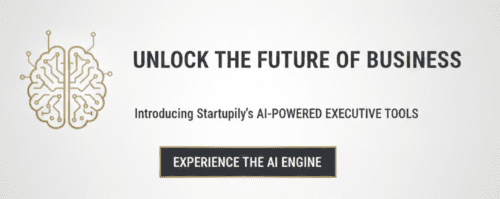Data suggests the total number of businesses increased from 314 million to 358 million in 2024. With millions of new ventures launching globally every year, entrepreneurialism is an increasingly popular career path. If you dream of running a company, the first step is to figure out what you want to do. In this guide, we’ll discuss some effective steps to help you find the perfect business idea.
Utilise Your Skills and Strengths
We all have strengths and weaknesses. One of the ways to identify a business niche as an entrepreneur is to utilise your skills and strengths. Think about your academic achievements, your professional experience and the skills you have. How can you use them to create a successful business? There are choices, such as tutoring, mentoring, coaching, and consulting. You can also use transferable skills to explore new opportunities. Perhaps your career experience lies in data analysis, for example, but you’d like to pursue a different route. You may want to use transferable skills and insights to set up a digital marketing agency or a company that specializes in app or platform development or fraud detection tools, for example.
Take Inspiration from your Passions and Interests to Start Your Business Idea
The old saying goes that if you find a job you love, you’ll never work a day in your life. It may be slightly unrealistic to think you’ll love every working day for the rest of your life. There’s a lot to be said for enjoying what you do. As an aspiring business owner, it’s a brilliant idea to take inspiration from your passions and interests. What do you enjoy doing in your spare time? Your hobbies? What engages, captivates, motivates or inspires you?
More and more people are launching businesses or side hustles based on their hobbies and interests. From creative activities to health and fitness, there are areas you can focus on to create an enterprise that reflects your passions. A recent Bankrate survey revealed that over a third of US adults have a side hustle.
Sports is a great example of using your interests to forge a new career path. If you love playing sports, keeping fit, watching sports, or competing, channel this when exploring business opportunities. Perhaps you could train to be a coach or a personal trainer. Maybe you could start a talent agency or develop an app to help people work out at home. You could also open a new indoor sports complex, a gym or a facility that promotes inclusive, accessible exercise. Opening new sports facilities plays into the hands of people who love sports but also want to give back to communities and champion healthy living. It can also offer opportunities to exercise design, architecture, finance, management, marketing, coaching, and construction skills, to name but a few.
Utilise Personal Experiences for Your Startup Idea
Many people develop business plans based on personal experiences. Parents are a brilliant example. When you have a child you often come across obstacles, and challenges that are more complex than they should be. Parents with entrepreneurial flair have taken problems and pain points and used them as a springboard to design new products or create services that make a positive difference. From brand-new products to aid sleep or feeding to apps that bring parents together or provide useful, unbiased information and reviews, there are endless examples.
The best business ideas usually stem from a desire to solve problems or make life easier or better for customers or users. If you’ve experienced difficulties in a previous job, on a commute, while travelling or as a parent, carer, shopper, buyer or client, use your experiences to shape your business plan.
Source Reliable Suppliers
The business economy, online and off, is nothing without a steady stream of reliable suppliers and partners, all working together in a cohesive way. No matter your business and its size, suppliers are just as much a part of the venture as you, employees, and products or services. But while you can find suppliers anywhere, it is the reliability and quality that matter. For example, suppose your boutique chocolate store relies on seasonal hamper promotions, quality wicker baskets that look, feel, and perform how customers expect and pay for, matters more than the price. Employees can come and go, but suppliers that you can rely on are actually pretty hard to find.
It’s also important to find some initial suppliers that you may only use every now and then, but are there nonetheless. For example, if you’re going to be opening a restaurant, you need someone to supply you with restaurant furniture, and if you create strong bonds here, you know that they will provide you with what you need later down the line also
Research Emerging Industries and Trends That Could Lead to a Good Business Idea
Running a successful business depends heavily on giving customers what they want and being agile enough to cater to changing trends and consumer preferences. Before you commit to an idea, product or service, it’s crucial to gauge the level of demand. Researching emerging industries and trends can help you capitalise on in-demand products and services and lower financial risks. If you invest in a product or service that people don’t want, you run a high risk of failure.
If you have a business idea, it’s always beneficial to undertake extensive market research before you proceed. Think carefully about who you want to target as your ideal customer base and find out more about competitors. Analyse sales figures and market growth rates and look at historical data. It’s important to think about the present and the future. You don’t want to buy into a market that has already peaked and is now declining or shrinking. Focus on opportunities to strike while the iron is hot and give customers new products, services and features that complement changing behaviours and emerging trends.
Consider Your Lifestyle and Life Goals
There are many different types of businesses. From side hustles and companies run by management teams to solo ventures and large-scale, international corporations, it’s wise to think about what you want to achieve as an entrepreneur. Some enterprises are much more labour-intensive than others. There’s a big difference between opening a single store, sports facility or restaurant with a management team in place or offering online consulting or tutoring services and starting a global e-commerce venture with grand plans to take over the world. Consider your lifestyle and life goals. If you want a healthy work-life balance, and you don’t want to live and breathe work, make sure you have realistic expectations.
There are benefits of being an entrepreneur, but it can be difficult to decide what to do as a business owner. Ingenious ideas don’t always strike like a bolt of lightning. If you’re keen to set up a new business, it’s wise to consider your skills, experience and strengths and take inspiration from your hobbies, interests and passions. Use your personal experiences to develop ideas and undertake market research. Think about how you can solve problems, offer something new and original and cater to changing preferences and emerging trends. Finally, consider your life goals and priorities.
- Avoiding the Recall Spiral: Why Equipment Design Demands Greater Focus
- The Foundation of Merger And Acquisitions Success: Strategy, Flexibility, and Precision
- For Manufacturers, Quality Control Should be a Sales MVP
- Investing in Retention: How Benefits Support a Stronger Workforce
- Cybersecurity Essentials for Customer-Facing Platforms: Safeguarding Trust in a Digital-FirstWorld


